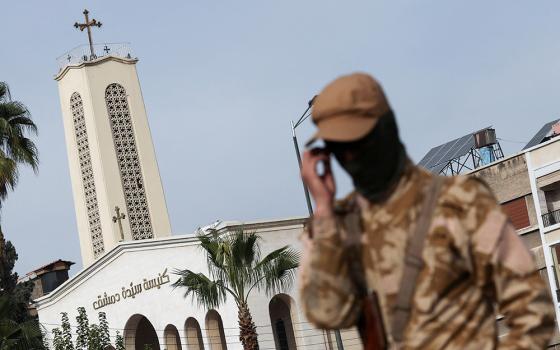As a priest in a small city of Detroit parish, I was offered a unique experience of the new translation of the Mass. For the past few months, we had tried to prepare our congregation for the transition in two ways: 1) We have been incorporating the sung responses [i.e. Gloria, Sanctus] in a new musical setting over the course of the last month; 2) Over the past few weeks, we have been practicing congregational responses such as the creed and preface at announcement time with participation aids in the pews.
The reality of the first weekend
I called attention to the cards in the pews as we began Mass this weekend. The upshot was that there was a lot more reading on everyone's part and a lot less focus on the meaning of the words. It was, in my opinion, a much more left-brain experience than I am used to at Mass. For me as a presider, this was particularly frustrating, since the words for almost every prayer the presider prays is now changed.
There were some rough waters in that half of the congregation said, "And with your spirit" while the other half said "And with you." That split characterized all of the responses. And I got lost trying to reconnoiter the new Roman Missal with an almost one-minute delay while I was looking for the Communion rite.
Responses from parishioners
When I inquired for responses from the congregation, I got a range from "They expect us to understand consubstantial. Yeah, right!" to "I'll come around to liking it, but not now."
While no one seemed to prefer the new prayers, folks appeared willing to try their best. I expect most of the assembly will adapt over the course of the next few months.
One presider's assessment
There were a couple of things I like about the new translation. There are now more biblical references and the prayer after Communion contained a surprising amount of alliteration. On the other hand, despite the promotion as a simpler liturgy, it is now wordier and more abstract. There is also a conflation between obfuscation and mystery. The transliteration is stilted and abstracted. If the translators really wanted to enhance the sense of the sacred in the liturgy, why did they strip English of its power? English's power relies on evocative language, metaphor, Anglo-Saxon graphic language and onomatopoeia. When you go to transliteration, it is akin to those electronic translators, in which reliance on word-for-word translation often results in stilted gobbledygook.
Finally, the translation is, in places, dishonest. Jesus didn't take a chalice. He took a cup. In the synoptics, Jesus says, "This is the cup of my blood." Big difference. It is not "many," but if we are to be faithful, "the many."
The upshot is that this has proved to be a lost opportunity. We could have had a simpler translation with evocative language and poetic power. Instead, we got liturgy by a left-brain dominant committee. I agree with Andrew Greeley. If instead of worrying about the words of Mass, the church would have spent its energies on the inculcation of seminarians in the arts -- poetry and drama -- we would have a much greater impact on the sense of the sacred than the silliness of "consubstantial" versus "one in being."


